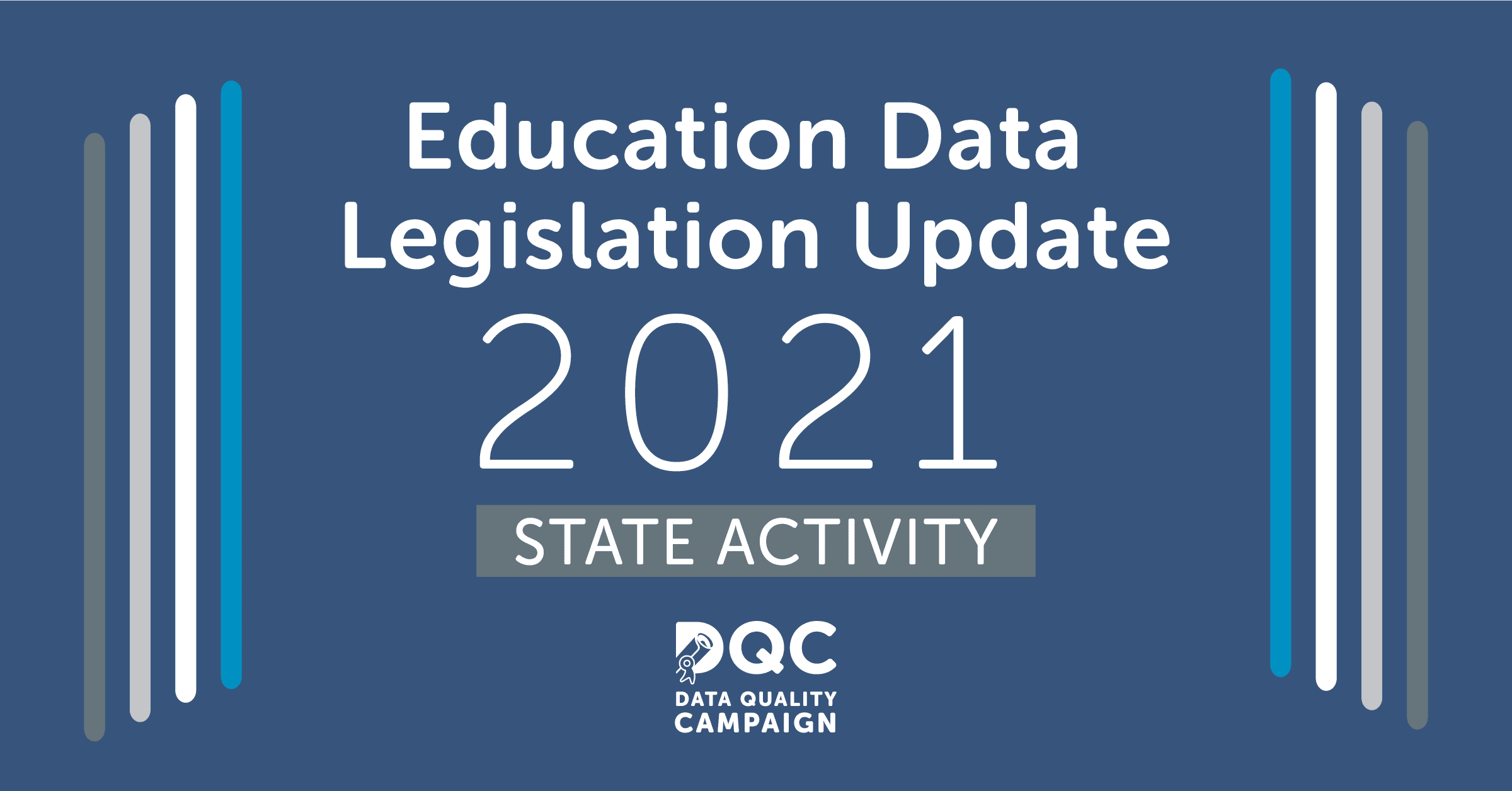Each year, the Data Quality Campaign (DQC) tracks and analyzes education data legislation in all 50 states to better understand how state legislators are considering policies that support data use in the course of pursuing their education and workforce priorities. This year, we’re continuing our legislative tracking and analysis of education data bills across the country, and are currently tracking 32 bills in 18 states.
Following are three bills that have emerged from the 2021 session, based on our tracking beginning in early January. So far, state legislatures have considered bills that include efforts to:
1. Make data available to students to support decisions about postsecondary pathways
State leaders in Maryland are considering the Student Horizon Database and Scorecard (Students Right to Know Act of 2021), which would direct state agencies to work together to collect and publish student data that can help students and families make better informed postsecondary decisions. Key provisions of this bill include the following:
- The State Department of Education must create a searchable database that allows students to compare postsecondary institutions based on outcome data.
- Local school systems must physically distribute scorecards with important information on postsecondary options to high school students each year.
Students and families need data when making important decisions about student pathways. In 2020, DQC took note of several states considering legislation to try to empower students with more information on pathways. As state legislators design such policies, they should consider students’ information needs and ensure that data is easy to find, use, and understand.
2. Establish statewide cross-agency data linkages and governance to support insights across the education continuum
South Carolina legislators are considering H.B. 3611, which would support a statewide P–20W data infrastructure to meet education and workforce goals. This bill would do the following:
- Establish the cross-agency Workforce and Education Data Oversight Committee, charged with managing, organizing, securing, and analyzing education, workforce, and other data necessary to meet the education and workforce goals in the state.
- Create a mechanism to require state agencies that collect data related to educational and workforce outcomes to share this information for the purposes of improving education quality to meet the state’s workforce goals, guide state and local decisionmakers, and respond to requests from the state, local agencies, and the General Assembly.
- Charge the state’s existing Coordinating Council for Workforce Development to use longitudinal data to identify and address South Carolina workforce needs.
Creating a cohesive statewide data infrastructure that securely links data across agencies, along with a formal cross-agency governance body, is the best way that states can ensure decisionmakers at all levels have the information they need to support student success. California leaders have been pursuing a collaborative, transparent effort to build such a data system, and a bill introduced in the General Assembly suggests an intention to move forward with this effort. As state leaders pursue policies to break down data silos, they should ensure a diverse range of stakeholders have a voice in the process to build trust and ensure that the system meets the needs of the people who will use it.
3. Better understand instances of exclusionary discipline use in schools
Although we are still early on in the 2021 legislative cycle, a few state legislatures have introduced bills specifically calling for the collection and reporting of school discipline data. One such bill in Vermont calls for the creation of an advisory council to analyze school discipline data so that it can be used to inform state and local decisionmaking. Central to this bill is the use of research to draw attention to the need for high-quality discipline data collection and reporting in state policymaking efforts.
Efforts to collect and report disaggregated discipline data reflect a growing interest we’ve seen in recent years to better understand how exclusionary discipline impacts the educational experience of different student groups. As they seek to understand disparities, legislators should remember that disaggregating data is key to identifying opportunity gaps and confronting persistent barriers to student success.
As states continue their 2021 legislative sessions, DQC looks forward to digging further into emerging trends among education data legislation. Check the DQC blog for updates!


